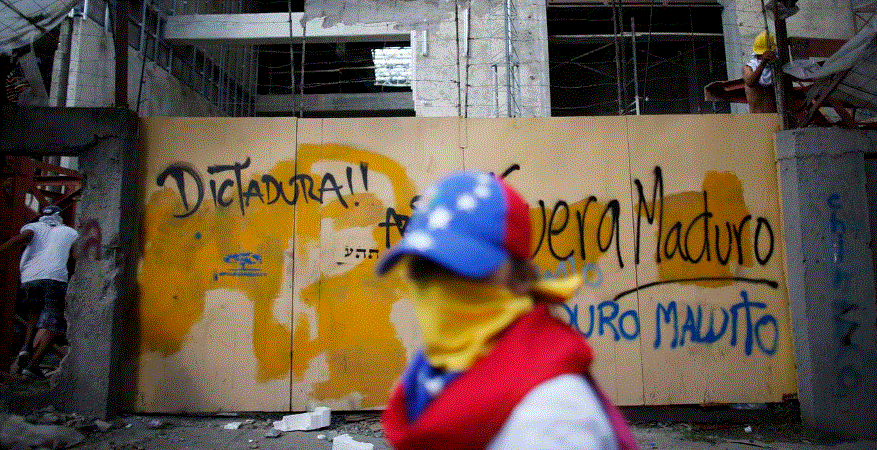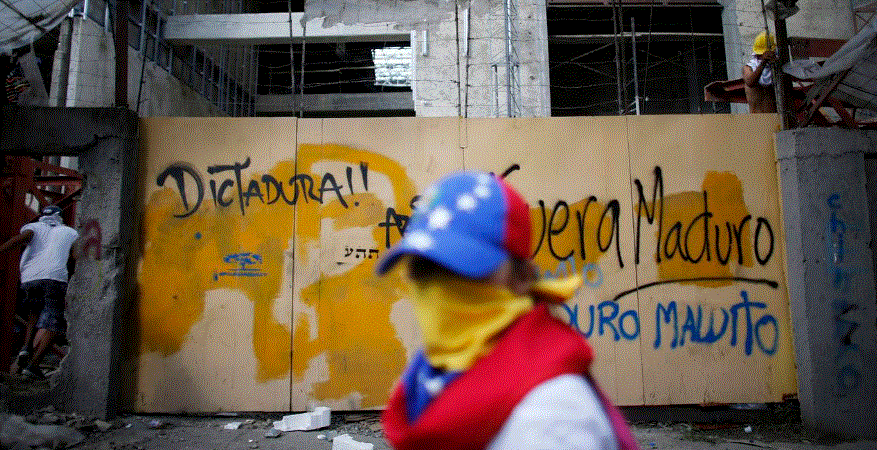
Venezuela is an emotionally, politically and economically paralyzed nation. A post-apocalyptic nation, as Carlos Monsivais from Mexico City used to say, because the worst is over. All the evils – the economic disaster, the end of democratic institutions, the largest migratory phenomenon in the history of Latin America, the crisis of the opposition leadership – happened to our country thanks to Hugo Chávez and “21st century socialism” and now, defeated all –the government that has power, but has no future–, and the democratic resistance –which is no longer resistance but paralysis and only has a past– share the same psychological state. The bitterness of resignation.
We get used to miserable life. In some states like Táchira, if the electricity comes on for a few hours, there is a party. If an ordinary citizen manages to renew his passport, there is another. If you are an opponent of the government and they haven’t put you in jail yet, you thank God and Nicolás Maduro. If your son or grandson, who emigrated to Chile or Spain, sends you a remittance of one hundred or two hundred dollars a month, you’re happy.
This is what I think of after rereading, due to the chances of social networks, an interview that the newspaper team The National did in 2018 to the psychiatrist Rebeca Jiménez, under the headline “The Venezuelan has been emotionally dismantled like the State.”
The fundamental thesis of the interview, made four years ago, but still valid, is that Venezuelans who do not support the narco-military government went from the euphoria of protest in the streets in 2017, from rage and action, to a state of absolute resignation in just one year, 2018.
The doctor defines it as the burnout state or syndrome of “being burned”, generated by the stress that implies fatigue and surrender, not only in the face of the economic crisis, but also in the face of deteriorated public services, lack of electricity, drinking water, gasoline , Internet connection, basic medicines, pensions for retirees and the failure of the opposition action.
“A pathological change that the government has caused,” says Rebeca Jiménez. And then he explains it in detail: “At this moment there is a process of depersonalization, disqualification and powerlessness of the Venezuelan (…) The citizen is in a psychological, social, economic checkmate, to which they have progressively led, and only seeks to survive. . If we refer to Maslow’s pyramid, at this time the Venezuelan is at a critical point in which to survive as a biological entity he has to focus all his attention on surviving. He has lost all the things that he had as normal: water, electricity, gasoline; it is the chaos of everyday life for him.”
It is an important fact. And obviously in this process of deterioration the silence or omission of the opposition political leadership has a decisive role. Leopoldo López keeps an almost metaphysical silence. Julio Borges does not exist. Ramos Allup’s enthusiastically warlike verb turned into muffled muteness. Henrique Capriles obviously has nothing to say.
An answer is needed to illuminate this path of shadows. It is assumed that there was a meeting in Panama to recreate a unified opposition platform. When a society enters a crisis, it is not only the rulers whose neurons melt and their personal ethics become unbalanced. Also the opponents. Does anyone have a flashlight?








